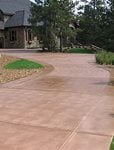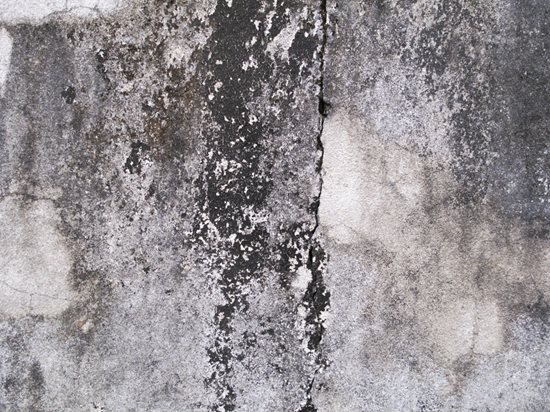- Concrete Cleaning Home
- Choosing a Concrete Cleaner or Degreaser
- How to Clean Exterior Concrete
- Concrete Cleaning Chemicals
- Pressure Washing Concrete
- Cleaning and Sealing Exterior Concrete: A Guide to Maintaining and Caring for Exterior Decorative Concrete of all Types
- Tips for Maintaining Exterior Concrete
- How to Clean Concrete
- How to Clean Concrete Floors
- How to Clean a Concrete Patio
- Cleaning a Concrete Driveway
- Cleaning Stamped Concrete
- Pool Deck Cleaning
- How to Clean Concrete Countertops
- How to Remove Stubborn Stains and Discoloration
- Advice on Cleaning Concrete Countertops, from Concrete-Countertops.org
- Related Information:
- Concrete Sealers
How to Clean Mold off Concrete
Think you have a mold problem? Here's how to deal with mold on concreteMold will make your concrete look bad, and can become a health and safety issue. For small areas, you can usually get rid of the mold yourself, but for larger problems, get professional help from a contractor offering concrete cleaning near me.
CAN MOLD GROW ON CONCRETE?
Wet conditions can cause mold and mildew growth on outdoor concrete like driveways, patios and steps. This growth usually occurs in damp or shaded areas that don't receive a lot of sun or heat. Concrete, with all its nooks, crannies and pores, is actually a great incubator for mold. Wet, humid weather with warm temperatures only improves the growing conditions.
What does mold on concrete look like?
Mold might look like black spots or areas that have turned green. Some mold is white, but can be confused with efflorescence, which is a salty film on the concrete. If the white substance dissolves easily with water it is likely the latter.
HOW TO CLEAN MOLD FROM CONCRETE
The best solution is to scrub and clean the affected areas with a mold-killing detergent, like RMR-86 Instant Mold & Mildew Stain Remover, or a simple solution of household bleach and water. Be sure to scrub aggressively to get down into the pores of the concrete. Let the detergent or bleach solution soak in for a while to ensure that all the mold is killed. After scrubbing, rinse with a power washer to get all the solid organic matter out of the concrete.
Learn more: Guide to Cleaning Concrete with Bleach

Once you've tackled the mold you can add color or an overlay to completely transform your concrete!
Get ideas from these concrete pictures.
Will vinegar kill mold on concrete?
Some people use vinegar when cleaning mold, but be careful because vinegar is acidic and could eat away the sealer or top cement layer of your concrete.
PREVENTING FUTURE MOLD GROWTH
You should seal the concrete with a good-quality acrylic sealer designed for exterior use. Let the concrete dry at least 2 or 3 days in rain-free, sunny conditions before sealing. I recommend using a low-solids solvent-based sealer to allow for better breathability, especially considering the warm, humid exposure conditions. Read my article Driveway Sealer for Concrete to learn more about choosing and applying sealer.
 All-Purpose Concrete Cleaner
Removes sealers and coatings.
All-Purpose Concrete Cleaner
Removes sealers and coatings.
 Cleaner & Degreaser
Starting at $11.95
Cleaner & Degreaser
Starting at $11.95
 Brickform Neutra Clean
A pH neutral cleaner that combines cleaning and light degreasing
Brickform Neutra Clean
A pH neutral cleaner that combines cleaning and light degreasing
 Commercial Surface Cleaners
Cuts through grease and grime. Environmentally friendly
Commercial Surface Cleaners
Cuts through grease and grime. Environmentally friendly
 Kemiko Neutra Clean
Low VOC All Purpose Cleaner. Leed compliant.
Kemiko Neutra Clean
Low VOC All Purpose Cleaner. Leed compliant.
WHAT ABOUT BASEMENT MOLD?
Mold is also a common issue in basements with moisture problems and can grow on concrete walls or floors. You’ll need to have a professional come remove the mold, waterproof your basement and/or install a dehumidifier or pump. RadonSeal basement waterproofing products are a great solution for fixing a wet basement where mold may grow.
Related:
Concrete Cleaning
Concrete Work to Do Before Selling Your Home
Author Chris Sullivan, ConcreteNetwork.com technical expert






